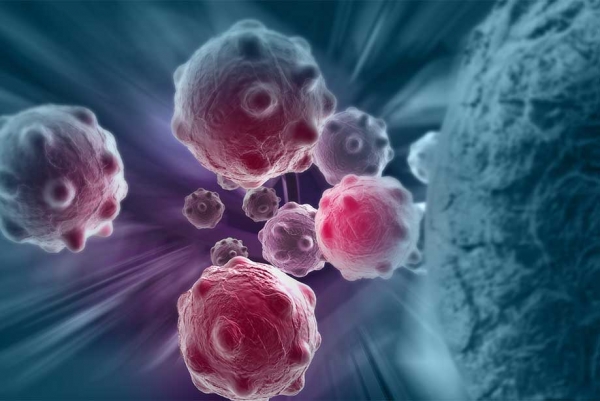Astronomers apply their skills to cancer research

You might not think that studying the universe could benefit research into serious illnesses like cancer, but Durham’s astronomers have joined forces with cancer researchers to improve the diagnosis and treatment of patients.
We’re working with the NHS, healthcare researchers and biotech experts on the £1million CUP-COMP project to improve outcomes for people with cancer of unknown primary (CUP).
Cancer therapies
Our scientists will use statistical methods normally used to understand the evolution of the universe to help model the success of cancer therapies across a range of datasets.
They hope the modelling can show how different therapies affect different cancers so future treatments can be tailored to individual patients.
CUP means that cancer has spread in a person’s body (secondary cancer), but doctors can't find where it started (the primary cancer).
It is a common cancer with poor prognosis affecting almost 9,000 people in the UK every year and accounting for approximately two per cent of all new cancer cases.
Every day approximately 24 people are diagnosed with, and 26 people die from, CUP. It is the fifth most common cause of cancer deaths, accounting for six per cent of all cancer deaths.
Despite significant advances and new drug development for other cancers, there are no approved immunotherapies and limited targeted therapies for CUP.
Just one genomic biomarker for CUP is currently funded, with limited progress due to the lack of research and funding.
Genomic sequencing
CUP-COMP will run for 18 months and aims to establish a way of assessing and comparing the impact of genomic sequencing in tissue and blood in patients with CUP at seven NHS sites across the UK.
By sharing knowledge with experts in healthcare about the analysis of huge datasets our researchers also hope to apply what they’ve learnt to better analyse images of galaxies.
This will help them to further understand the evolution of the universe and the dark matter that scientists think allows galaxies to form and grow.
Find out more
- The CUP-COMP study involves The Christie NHS Foundation Trust, Roche UK and biotech company ConcR working with experts in Astronomy and Astrophysics in our Department of Physics.
- Durham’s researchers on the project are Dr James Nightingale and Professor Richard Massey.
- CUP-COMP has been funded by the UK Government via Innovate UK.
- Discover more about Astronomy and Cosmology at Durham and how our research is making a difference to life on Earth.
- Interested in studying Physics? See our undergraduate and postgraduate opportunities.


/prod01/prodbucket01/media/durham-university/departments-/physics/teaching-labs/VT2A9034-1998X733.jpeg)